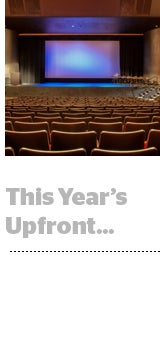Here’s today’s AdExchanger.com news round-up… Want it by email? Sign up here.
Let Me Be Upfront
Beyond canceling the glitzy upfront events this year, the coronavirus pandemic might have a broader impact on how TV ad dollars are negotiated for the season. With studio productions for fall 2020 in limbo, most of the dealmaking between ad buyers and broadcasters that typically happens in the spring and summer will be postponed, and it’s unclear whether there will be new pilots when the prime-time season starts up again. Pilots need to be ready by May for networks to plan their fall schedules. And advertisers are so busy moving their budgets around in response to the crisis, they’re not likely to make any decisions more than a few weeks out. “There are companies right now fighting to keep their business alive in some cases,” Mike Law, president of Amplifi, told Ad Age. “They can’t make a 12-month forward commitment.” Some network and agency executives are hopeful the disruption will help the industry move away from what’s seen by many as an antiquated process. “The silver lining coming out of this could be an entirely new way of doing business,” one ad exec said. More.
Will It Hold?
The internet is holding. For now, at least. Verizon CEO Hans Vestberg told CNBC that in a week-over-week comparison, streaming has increased 12%, VPN connections were up 30%, web traffic grew by 20% and gaming skyrocketed 75%. In Europe, Google and Netflix reduced streaming quality to preserve internet bandwidth, CNN reports. The European Commissioner for internal market and services, Thierry Breton, said that “all have a joint responsibility to take steps to ensure the smooth functioning of the internet during the battle against the virus propagation.” And the throttling is starting now because network strain will increase. Live video uses more bandwidth than video streams, because companies such as Netflix and YouTube turn files into small packets and buffer them separately to maintain video quality. Netflix and YouTube are the biggest data consumers of the internet, but Twitch is a monster too because it’s almost all livestreaming. Amazon, which owns Twitch, is already working with the EU to reduce traffic for its Prime Video library. There haven’t been large-scale internet outages (knock on wood). But as remote workers turn to live video applications such as Zoom, the system will feel it more every week. More.
Shotgun!
Music services are trying to sneak into the people’s cars to replace radio. Automobiles are the last bastion of traditional media. Radio reaches 92% of American audiences, more than any other media channel, according to Nielsen data. The lifecycle of a car is long, but as people buy new models, they’re more likely to have Spotify, Apple or Amazon as their default audio option. Radio stations won’t find allies in music labels, despite the longstanding tensions between the studios and streaming companies, The Wall Street Journal reports. In fact, it’s quite the opposite. Streaming services pay a royalty per listen: Radio stations just buy and play a record. To Spotify and co., radio looks like a fatted calf. Radio has about 245 million American monthly listeners, compared to Spotify at 60 million. If Spotify converts 3% of adults who listen to the radio and don’t have an account, it would mean a 20% jump in its user base. More.
But Wait, There’s More
- Will Homer Simpson Break The Internet? – FT
- Facebook, Google Discuss Sharing Data With Govs To Fight Coronavirus – CNBC
- How Sports Broadcasters Are Adapting To Game Cancelations – Digiday
- Forrester: Consumer Energy Drops On All 4 Dimensions Amid COVID-19 – blog
- Locked-Down Lawyers Warned Alexa Is Hearing Confidential Calls – Bloomberg
- Keeping The Internet Running In The Coronavirus Era – The Information
- Think Twice Before Extending Agencies’ Payment Terms – MediaPost
You’re Hired
- NBA Hires Spotify Marketing Exec Danielle Lee – Business Insider













